
The Enchanting Coastal Paradise of Nusa Dua
Nusa Dua, located on the southeastern coast of Bali, Indonesia, is a luxurious enclave known for its pristine beaches, world-class resorts, and cultural richness. As you step into Nusa Dua, you'll be greeted by immaculate landscapes, where perfectly manicured gardens meet the azure waters of the Indian Ocean. This area is celebrated for its tranquility, making it an ideal spot for those seeking a serene and rejuvenating vacation experience. The heart of Nusa Dua is its stunning beaches, where powdery white sands stretch endlessly and are fringed by calm, crystal-clear waters. Many of the beachfront resorts offer private access to these idyllic shores, ensuring a peaceful sunbathing or swimming experience. For the more adventurous, water sports like snorkeling, jet-skiing, and paddleboarding are readily available. The underwater world here is teeming with vibrant marine life, offering spectacular views for divers and snorkelers alike. Beyond the beaches, Nusa Dua is home to the Bali Collection, a premier shopping and dining destination. Here, visitors can indulge in high-end shopping, savor delicious local and international cuisine, and enjoy cultural performances that showcase traditional Balinese dance and music. Nusa Dua is also a gateway to some of Bali’s most iconic cultural sites, such as the Uluwatu Temple and the Garuda Wisnu Kencana Cultural Park, both of which are just a short drive away. These attractions provide a glimpse into the rich cultural tapestry of Bali, making Nusa Dua not just a beach destination but a cultural journey as well.
Local tips in Nusa Dua
- Book your resort stay well in advance, especially during peak tourist seasons, to secure the best rooms and rates.
- Visit the beaches early in the morning to enjoy the tranquil atmosphere before the crowds arrive.
- Don't miss the Devdan Show at Bali Nusa Dua Theatre for an immersive cultural experience.
- Explore the Bali Collection for a variety of dining options, from traditional Balinese cuisine to international dishes.
- Consider renting a bicycle to explore the scenic coastal paths and nearby attractions at your own pace.
The Enchanting Coastal Paradise of Nusa Dua
Nusa Dua, located on the southeastern coast of Bali, Indonesia, is a luxurious enclave known for its pristine beaches, world-class resorts, and cultural richness. As you step into Nusa Dua, you'll be greeted by immaculate landscapes, where perfectly manicured gardens meet the azure waters of the Indian Ocean. This area is celebrated for its tranquility, making it an ideal spot for those seeking a serene and rejuvenating vacation experience. The heart of Nusa Dua is its stunning beaches, where powdery white sands stretch endlessly and are fringed by calm, crystal-clear waters. Many of the beachfront resorts offer private access to these idyllic shores, ensuring a peaceful sunbathing or swimming experience. For the more adventurous, water sports like snorkeling, jet-skiing, and paddleboarding are readily available. The underwater world here is teeming with vibrant marine life, offering spectacular views for divers and snorkelers alike. Beyond the beaches, Nusa Dua is home to the Bali Collection, a premier shopping and dining destination. Here, visitors can indulge in high-end shopping, savor delicious local and international cuisine, and enjoy cultural performances that showcase traditional Balinese dance and music. Nusa Dua is also a gateway to some of Bali’s most iconic cultural sites, such as the Uluwatu Temple and the Garuda Wisnu Kencana Cultural Park, both of which are just a short drive away. These attractions provide a glimpse into the rich cultural tapestry of Bali, making Nusa Dua not just a beach destination but a cultural journey as well.
Iconic landmarks you can’t miss
Bali Collection
Discover Bali Collection, the ultimate shopping and dining destination in Nusa Dua, where luxury meets tropical beauty and cultural charm.
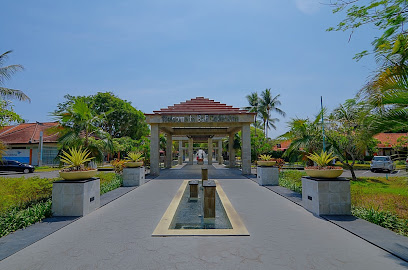
Waterblow
Discover the breathtaking beauty of Waterblow in Bali, where the ocean meets the cliffs in a spectacular display of nature's power.
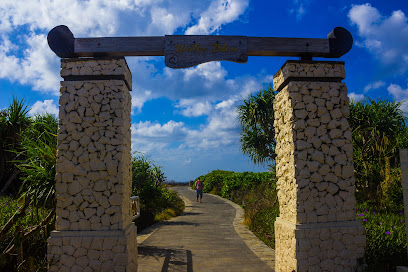
DELUANG SARI Penangkaran Penyu Bali Tanjung Benoa
Discover the beauty of sea turtles at DELUANG SARI Penangkaran Penyu Bali, a captivating sanctuary in Tanjung Benoa dedicated to turtle conservation.
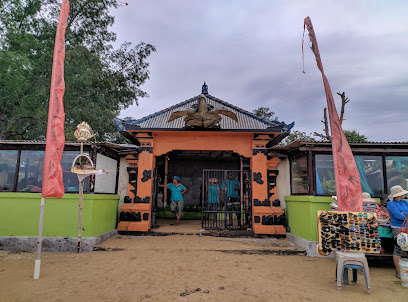
Peninsula Island
Explore Peninsula Island in Nusa Dua, where breathtaking beaches meet vibrant culture, offering a perfect retreat for relaxation and adventure.
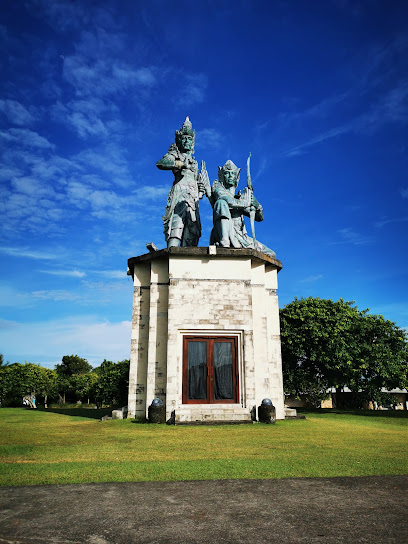
Pantai Nusa Dua
Discover the serene beauty of Pantai Nusa Dua, where golden sands meet azure waters in the heart of Bali's luxurious coastline.
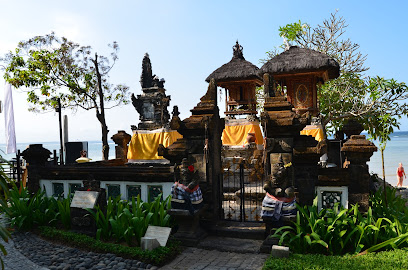
Nusa dua
Discover Nusa Dua, Bali's tranquil beach paradise, where pristine sands meet luxury resorts and vibrant cultural experiences await every traveler.
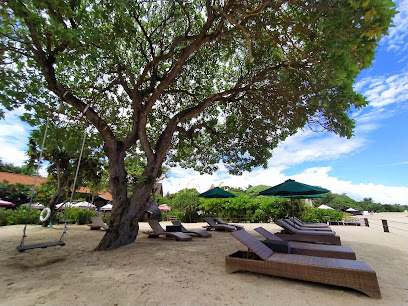
Museum Pasifika Bali
Explore the vibrant art and culture of the Pacific at Museum Pasifika in Bali, where every piece tells a unique story.
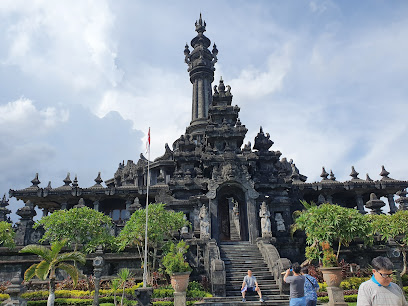
Nusa Dua Beach
Experience the serenity and beauty of Nusa Dua Beach, Bali's premier destination for sun, sand, and unforgettable ocean adventures.
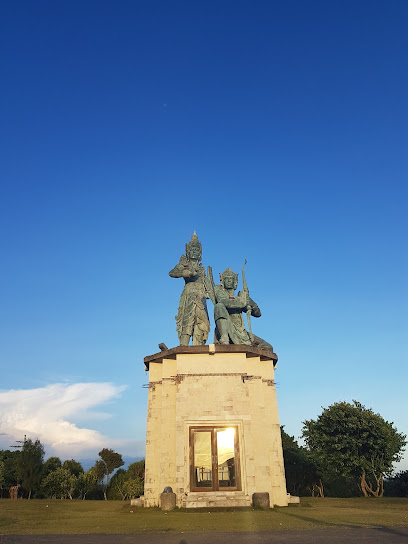
Nusa Dua
Explore Nusa Dua, Bali's serene beach paradise known for its luxurious resorts, pristine beaches, and vibrant marine life, perfect for relaxation and adventure.
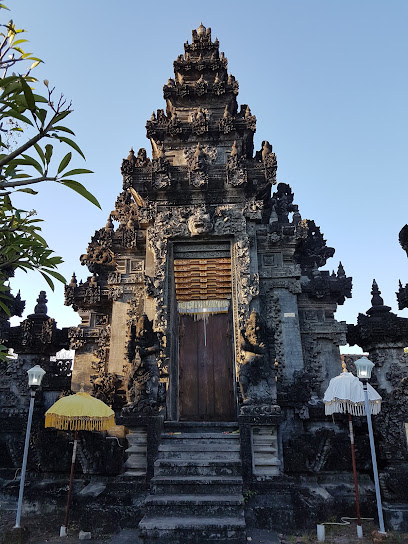
Kawasan Pariwisata Nusa Dua
Experience the luxury and tranquility of Kawasan Pariwisata Nusa Dua, a top destination in Bali, where stunning beaches and rich culture await.
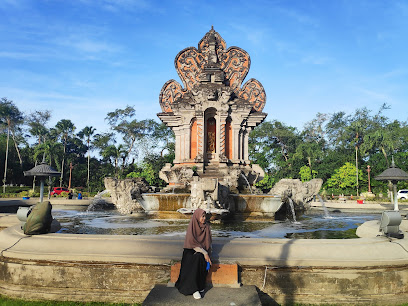
Mandala Monument
Experience tranquility and cultural heritage at the stunning Mandala Monument in Benoa, Bali, a perfect escape for relaxation and reflection.
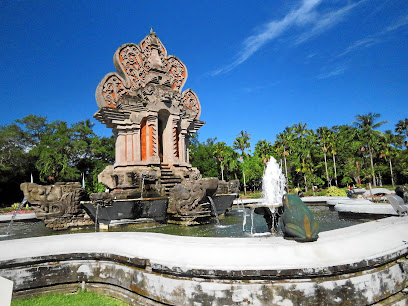
Gapura Nusa Dua
Experience the breathtaking architecture and natural beauty at Gapura Nusa Dua, a stunning gateway to Bali's luxurious resorts and pristine beaches.
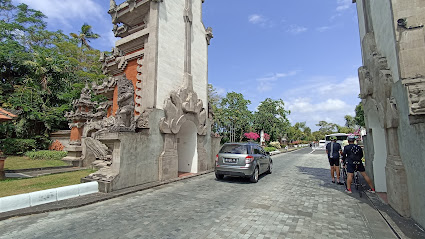
Unmissable attractions to see
Pandawa Beach
Experience the serene beauty of Pandawa Beach in Bali, where soft sands and azure waters create the perfect escape for relaxation and adventure.
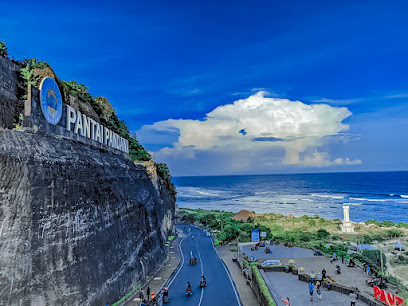
Waterblow
Explore Waterblow in Bali – a breathtaking natural attraction where waves meet rugged cliffs, creating stunning oceanic displays.
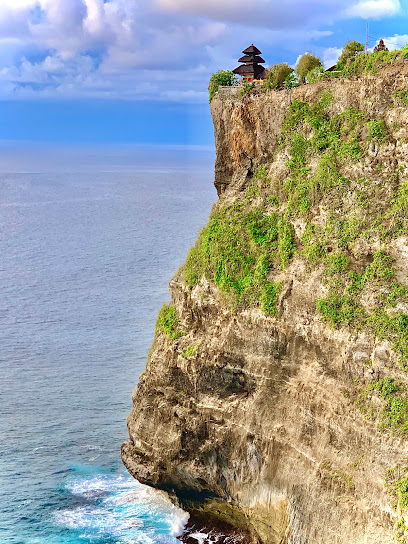
DELUANG SARI Penangkaran Penyu Bali Tanjung Benoa
Explore the enchanting DELUANG SARI Penangkaran Penyu in Bali for an unforgettable experience dedicated to sea turtle conservation.
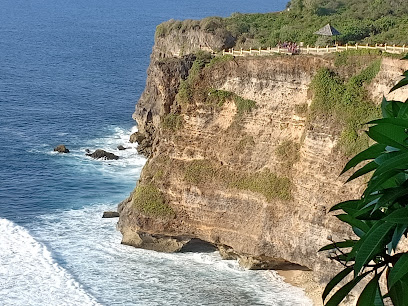
Satria Gatotkaca Park
Explore the enchanting Satria Gatotkaca Park in Bali, where culture, nature, and tranquility converge in a stunning landscape.
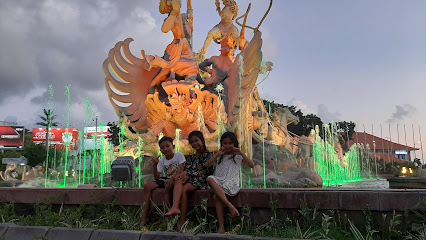
Peninsula Island
Experience the tranquility and beauty of Peninsula Island, a hidden paradise in Bali known for its stunning beaches and vibrant marine life.
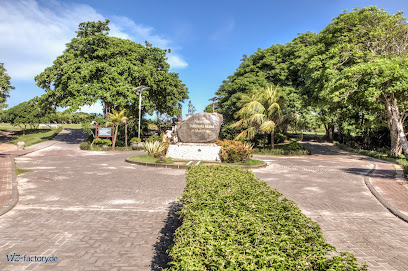
Museum Pasifika Bali
Explore the rich cultural heritage of the Pacific at Museum Pasifika in Bali, where art and history come alive in a serene setting.
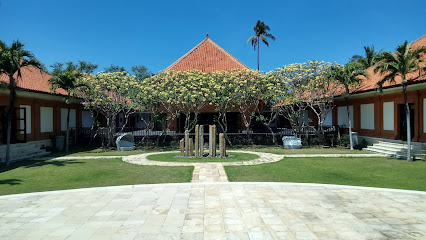
Bali Fantasi Benoa Bay (Turtle park)
Discover the enchanting Bali Fantasi Benoa Bay: a turtle haven offering fun, education, and conservation for all ages.
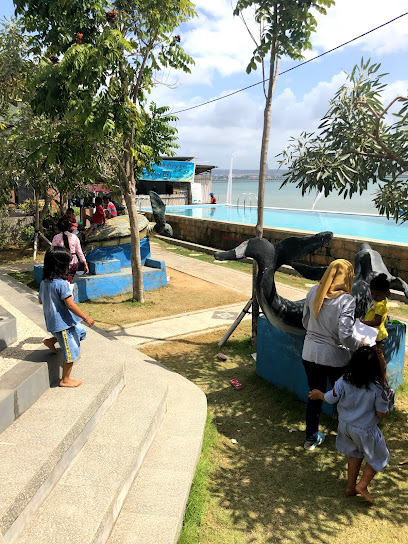
Nusa Dua
Discover the beauty of Nusa Dua, Bali – a luxurious paradise with stunning beaches, rich culture, and unforgettable experiences.
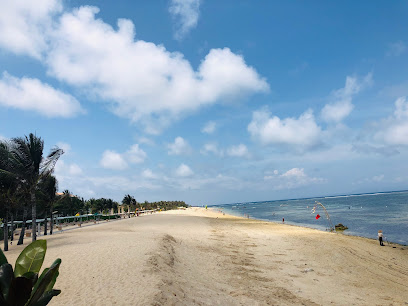
Kawasan Pariwisata Nusa Dua
Explore the pristine beaches, cultural treasures, and luxury resorts of Kawasan Pariwisata Nusa Dua, Bali's ultimate travel destination.
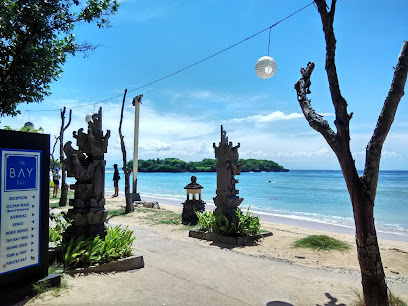
Jagatnatha Temple
Explore the serene Jagatnatha Temple in Bali, a stunning Hindu sanctuary that showcases intricate architecture and vibrant cultural significance.
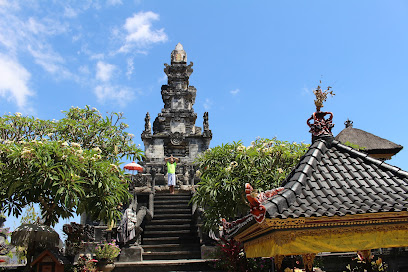
Suryodaya Beach
Discover the serene beauty of Suryodaya Beach in Bali, a tranquil haven perfect for relaxation and breathtaking sunsets.
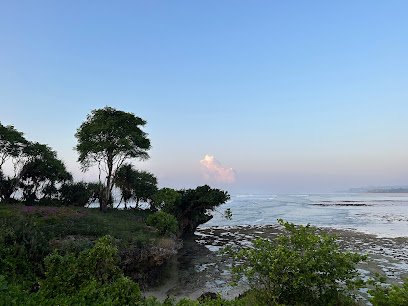
Yoga Dharma The Nusa Dua
Discover tranquility at Yoga Dharma in Nusa Dua, Bali—a perfect escape for yoga enthusiasts and wellness seekers alike.
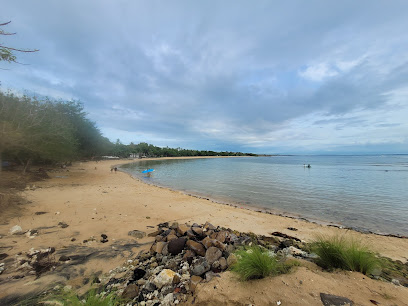
Gapura Nusa Dua
Experience the beauty and culture of Bali at Gapura Nusa Dua, a stunning gateway to the enchanting Nusa Dua region and its pristine beaches.
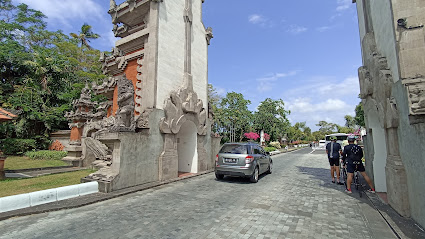
Point d'orientation
Experience the breathtaking views at Point d'Orientation, a serene tourist attraction in Benoa, South Kuta, Bali, perfect for relaxation and photography.
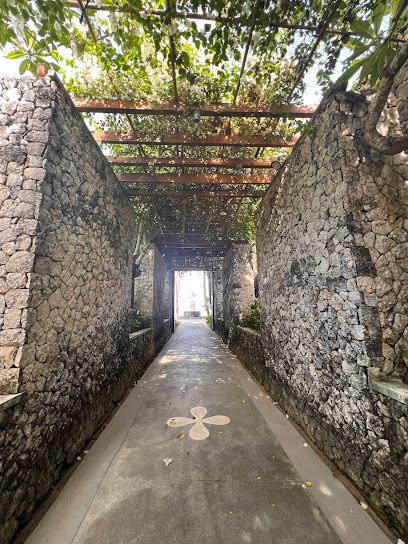
Essential places to dine
Bebek Bengil Nusa Dua
Experience authentic Balinese cuisine with breathtaking views at Bebek Bengil Nusa Dua - A must-visit culinary destination in Bali.
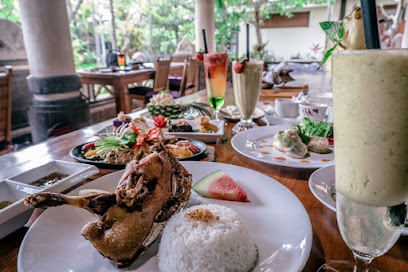
Nusa By/Suka - Nusa Dua
Experience culinary excellence at Nusa By/Suka in Nusa Dua - where Mediterranean flavors meet Balinese hospitality.
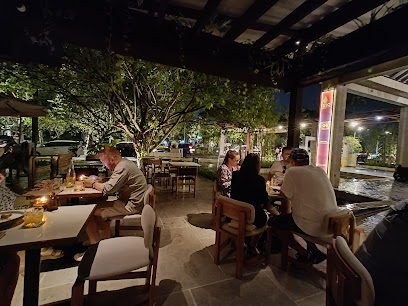
Kekeb Restaurant, Balinese Food Nusa Dua
Discover authentic Balinese cuisine at Kekeb Restaurant in Nusa Dua - where flavor meets tradition amidst tropical beauty.
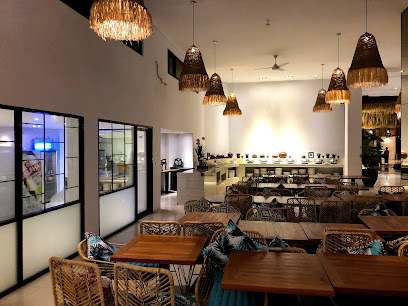
Mr Bob Bar and Grill Nusadua (Second Outlet)
Experience the vibrant flavors of Asia and Europe at Mr Bob Bar and Grill Nusadua - A culinary haven in the heart of Bali.
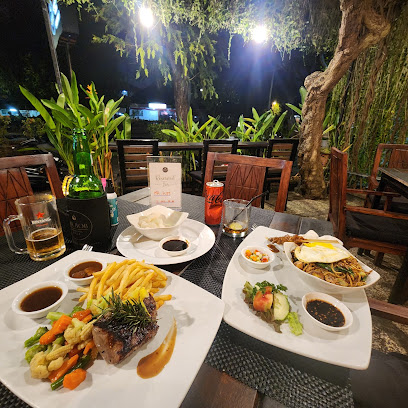
Raja Bali Nusa Dua (Second Outlet)
Discover the essence of Balinese flavors at Raja Bali Nusa Dua, where traditional dishes meet stunning ambiance for an unforgettable dining experience.
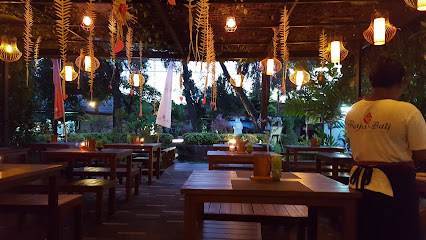
Piasan - Nusa Dua Restaurant
Experience authentic Italian flavors at Piasan Restaurant in Nusa Dua, where culinary excellence meets tropical charm.
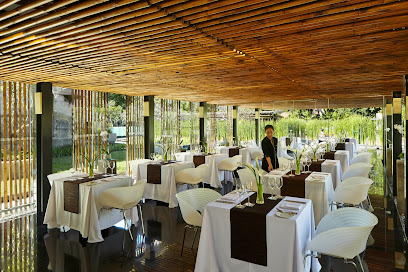
Laguna Garden Restaurant Bali Collection Block A
Discover authentic Balinese cuisine in a tranquil setting at Laguna Garden Restaurant in Bali Collection.
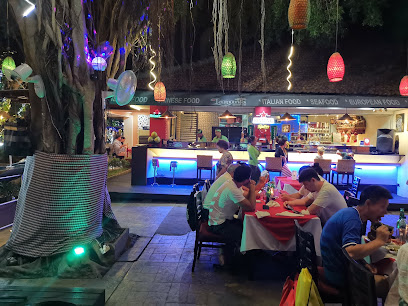
Prego at The Westin Resort Nusa Dua, Bali
Experience authentic Italian cuisine in an elegant setting at Prego in The Westin Resort Nusa Dua, Bali - where every meal is a celebration.
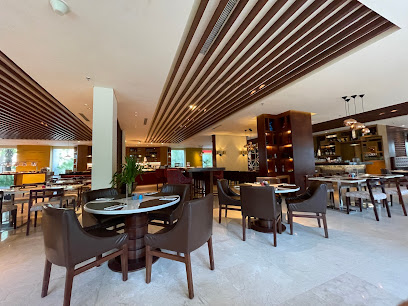
Bali Nelayan
Discover Bali Nelayan: where exquisite Chinese flavors meet fresh seafood delights in a stunning Balinese setting.
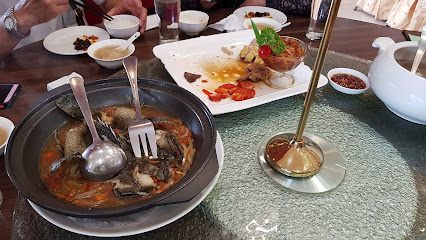
Tavern De Bali Bar and Restaurant
Experience authentic Indonesian cuisine at Tavern De Bali Bar and Restaurant—where vibrant flavors meet welcoming ambiance in beautiful Bali.
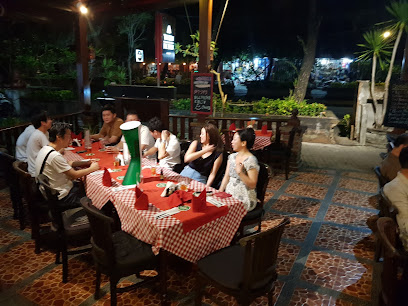
Markets, malls and hidden boutiques
Bali Collection
Discover the best of shopping, dining, and culture at Bali Collection, a vibrant mall in Nusa Dua, Bali.
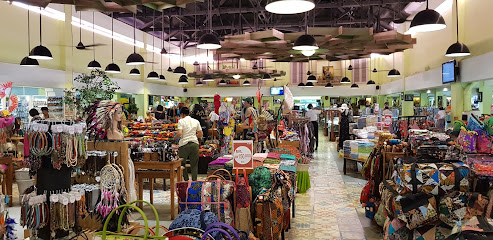
Sogo Departement Store - Bali Collection
Experience unparalleled shopping at Sogo Department Store in Bali Collection, where style meets variety in a vibrant atmosphere.
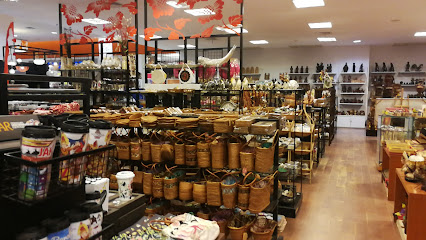
Bali in Bali
Discover unique Balinese souvenirs and local crafts at Bali's charming gift shop in Benoa, perfect for capturing the essence of your vacation.
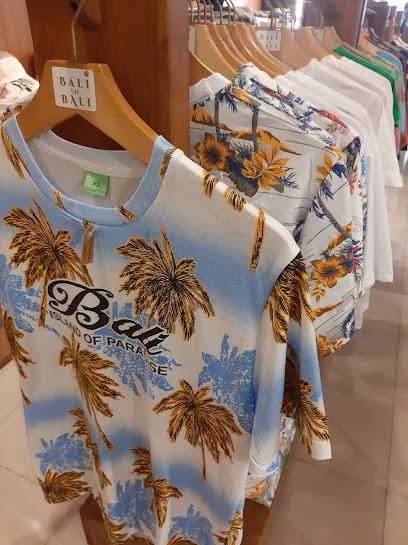
Quiksilver Nusa Dua
Discover the essence of Bali's surf culture at Quiksilver Nusa Dua, offering trendy surfwear and accessories for every beach lover.
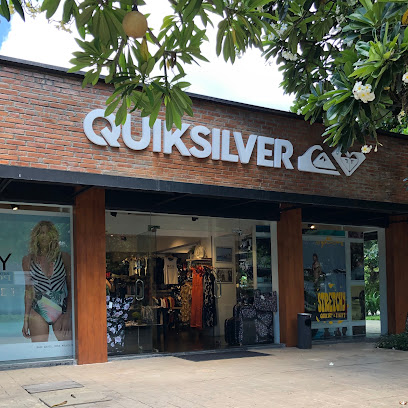
Alun Alun Indonesia Nusa Dua
Explore Alun Alun Indonesia Nusa Dua for an authentic boutique shopping experience, showcasing the best of Indonesian craftsmanship and culture.
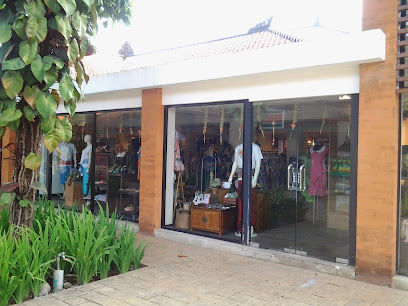
Izia Store
Explore the stylish offerings at Izia Store in Benoa, Bali, where contemporary fashion meets traditional Balinese charm.

Padi Collection
Explore Padi Collection: Your destination for unique Balinese gifts, fashion accessories, and exquisite local coffee.
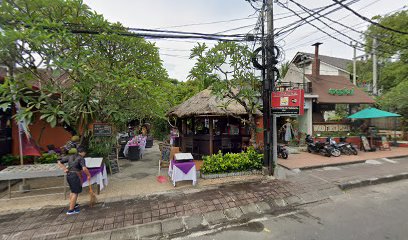
Garage Sale Nusa Dua
Explore unique and sustainable fashion finds at Garage Sale Nusa Dua, a vibrant clothing store in Bali's Benoa area.
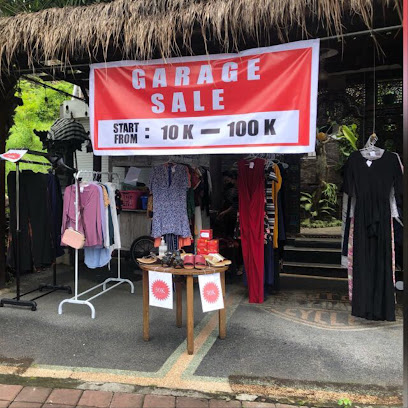
At The Corner Bali Collection
Explore unique fashion and local artistry at At The Corner Bali Collection, a boutique experience that embodies the spirit of Bali.
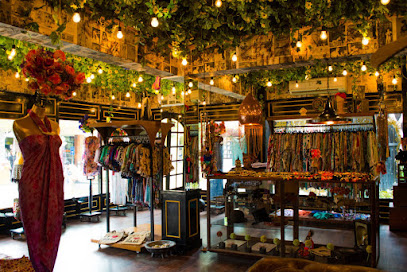
Bintang Clara Nusa Dua
Explore the vibrant shopping scene at Bintang Clara Nusa Dua, where local craftsmanship meets modern elegance in the heart of Bali.
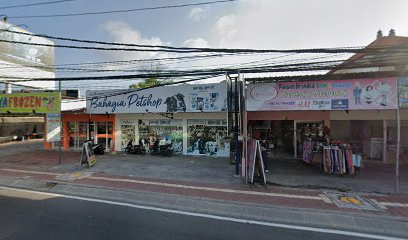
Essential bars & hidden hideouts
Nyoman's Beer Garden Bar & Restaurant
Discover the perfect blend of German cuisine and lively ambiance at Nyoman's Beer Garden in Bali's scenic Benoa region.
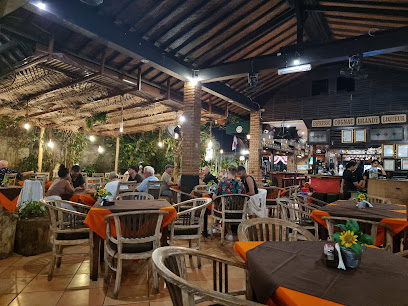
Mr Bob Bar and Grill Nusadua (Second Outlet)
Discover the essence of Bali's flavors at Mr. Bob Bar and Grill Nusadua, where diverse cuisines and vibrant ambience come together.
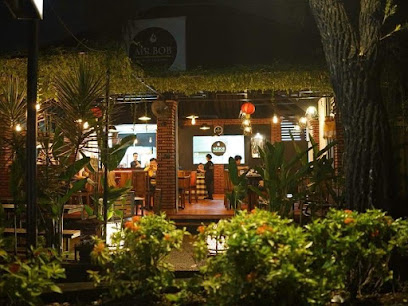
Cockatoo International Bar & Restaurant Nusa Dua
Discover the vibrant flavors of Bali at Cockatoo International Bar & Restaurant in Nusa Dua, where exquisite cuisine meets tropical ambiance.
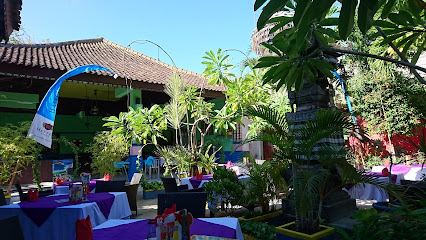
Reef Beach Club
Discover the serene luxury of Reef Beach Club in Nusa Dua, Bali, where gourmet dining meets stunning ocean views for an unforgettable getaway.
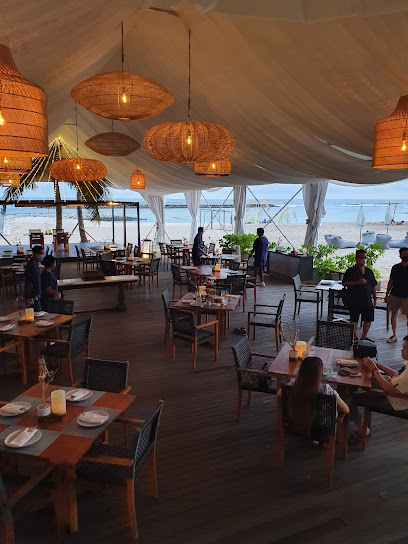
Kulkul Beach House
Experience the perfect blend of tropical elegance and vibrant social atmosphere at Kulkul Beach House, Nusa Dua's premier beachside bar and lounge.
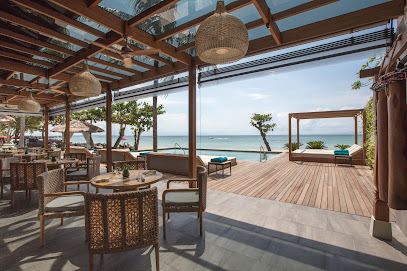
Tavern De Bali Bar and Restaurant
Discover the flavors of Indonesia at Tavern De Bali Bar and Restaurant, a vibrant dining experience in the heart of Nusa Dua, Bali.
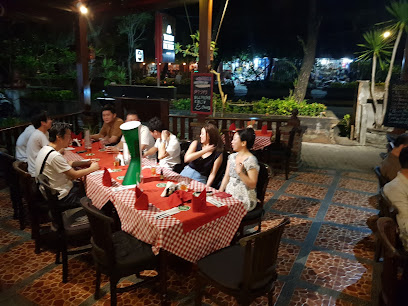
Sky Bar at Mulia Bali
Experience unparalleled luxury at Sky Bar in Bali, where breathtaking ocean views meet exquisite cocktails and tapas in a chic atmosphere.
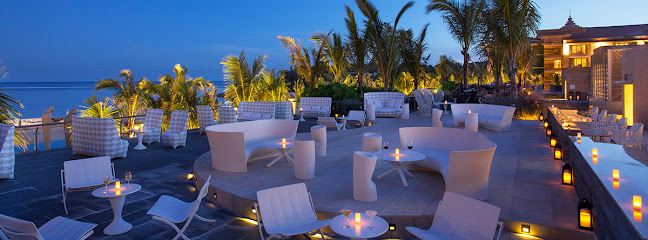
Pool Bar at The Courtyard by Marriott Bali Nusa Dua Resort
Experience the ultimate relaxation at the Pool Bar in Bali with refreshing cocktails, light bites, and serene poolside vibes.
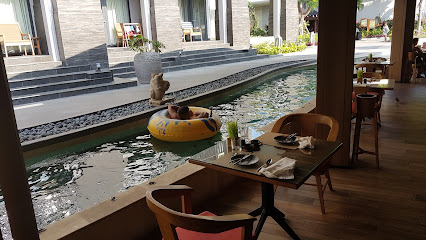
The St. Regis Bar
Experience luxury and tranquility at The St. Regis Bar in Bali, where exquisite drinks meet stunning views and a serene atmosphere.
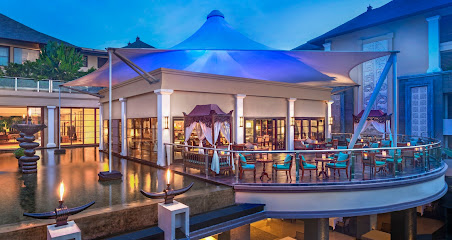
By The Water at The Westin Resort Nusa Dua, Bali
Experience tranquility at By The Water, a serene bar at The Westin Resort Nusa Dua, offering refreshing drinks and stunning ocean views in Bali.
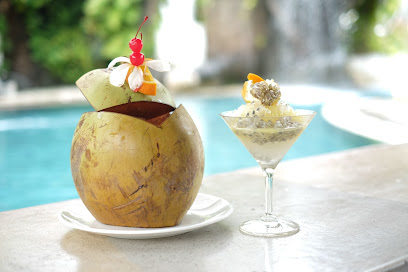
Local Phrases
-
- HelloHalo
[hah-loh] - GoodbyeSelamat tinggal
[seh-lah-maht ting-gahl] - YesYa
[yah] - NoTidak
[tee-dahk] - Please/You're welcomeSilakan
[see-lah-kahn] - Thank youTerima kasih
[teh-ree-mah kah-see] - Excuse me/SorryMaaf
[mah-ahf] - How are you?Apa kabar?
[ah-pah kah-bahr] - Fine. And you?Baik. Dan kamu?
[bah-eek. dahn kah-moo] - Do you speak English?Apakah kamu bisa berbicara bahasa Inggris?
[ah-pah-kah kah-moo bee-sah buhr-bee-chah bah-hah-sah Ing-grees] - I don't understandSaya tidak mengerti
[sah-yah tee-dahk muhng-ehr-tee]
- HelloHalo
-
- I'd like to see the menu, pleaseSaya ingin melihat menu, tolong
[sah-yah een-geen muh-lee-haht meh-noo toh-lohng] - I don't eat meatSaya tidak makan daging
[sah-yah tee-dahk mah-kahn dah-yahng] - Cheers!Selamat minum!
[seh-lah-maht mee-noom] - I would like to pay, pleaseSaya ingin membayar, tolong
[sah-yah een-geen muhm-bah-yahr toh-lohng]
- I'd like to see the menu, pleaseSaya ingin melihat menu, tolong
-
- Help!Tolong!
[toh-lohng] - Go away!Pergi!
[pehr-gee] - Call the Police!Panggil polisi!
[pahng-geel poh-lee-see] - Call a doctor!Panggil dokter!
[pahng-geel dohk-tehr] - I'm lostSaya tersesat
[sah-yah tehr-suh-saht] - I'm illSaya sakit
[sah-yah sah-keet]
- Help!Tolong!
-
- I'd like to buy...Saya ingin membeli...
[sah-yah een-geen muhm-buh-lee] - I'm just lookingSaya hanya melihat-lihat
[sah-yah hahn-yah meh-lee-haht-lee-haht] - How much is it?Berapa harganya?
[buh-rah-pah hahr-gahn-yah] - That's too expensiveItu terlalu mahal
[ee-too teh-rah-lah mah-hahl] - Can you lower the price?Bisakah Anda menurunkan harganya?
[bee-sah-kah ahn-dah muh-noor-kahn hahr-gahn-yah]
- I'd like to buy...Saya ingin membeli...
-
- What time is it?Sekarang jam berapa?
[seh-kah-rahn jahm buh-rah-pah] - It's one o'clockSekarang pukul satu
[seh-kah-rahn poo-kool sah-too] - Half past (10)Setengah (sepuluh)
[seh-tehn-gah (seh-poo-looh)] - MorningPagi
[pah-gee] - AfternoonSore
[soh-reh] - EveningMalam
[mah-lahm] - YesterdayKemarin
[kuh-mah-reen] - TodayHari ini
[hah-ree ee-nee] - TomorrowBesok
[beh-sohk] - 1Satu
[sah-too] - 2Dua
[doo-ah] - 3Tiga
[tee-gah] - 4Empat
[em-paht] - 5Lima
[lee-mah] - 6Enam
[eh-nahm] - 7Tujuh
[too-joo] - 8Delapan
[deh-lah-pahn] - 9Sembilan
[sem-bee-lahn] - 10Sepuluh
[seh-poo-looh]
- What time is it?Sekarang jam berapa?
-
- Where's a/the...?Di mana...
[dee mah-nah] - What's the address?Alamatnya apa?
[ah-lah-maht-nyah ah-pah] - Can you show me (on the map)?Bisa tunjukkan saya (di peta)?
[bee-sah toon-jook-kahn sah-yah (dee peh-tah)] - When's the next (bus)?Kapan yang berikutnya (bis)?
[kah-pahn yang buh-roo-keet-nyah (bees)] - A ticket (to ....)Tiket (ke ....)
[tee-keht (keh ....)]
- Where's a/the...?Di mana...
History of Nusa Dua
-
Nusa Dua, known for its serene beaches and luxurious resorts, has deep historical roots that trace back to Bali's earliest civilizations. The region has long been a site of spiritual significance, with temples such as the Pura Geger dating back centuries, reflecting the island's rich Hindu culture and traditions. This area was historically significant for its offerings to deities, showcasing the Balinese practice of worship and reverence for nature.
-
In the 1970s, the Indonesian government recognized the potential of Nusa Dua as a prime tourist destination. The establishment of the Bali Tourism Development Corporation in 1973 marked the beginning of a large-scale development project. This initiative transformed Nusa Dua into a luxury resort area, attracting international tourists and fostering economic growth. The development included the construction of high-end hotels, golf courses, and convention centers, effectively reshaping the landscape of tourism in Bali.
-
Nusa Dua is home to various cultural festivals and events that highlight the rich traditions of Bali. One of the prominent events is the Bali Arts Festival, held annually, showcasing traditional Balinese music, dance, and crafts. This festival not only celebrates the local culture but also promotes tourism and cultural exchange, drawing visitors from around the world to experience the vibrant arts scene of Bali.
-
In recent years, Nusa Dua has become a model for sustainable tourism in Bali. The area has implemented various environmental conservation efforts, including beach clean-up initiatives and the establishment of marine protected areas. These efforts aim to preserve the natural beauty of the coastline and promote responsible tourism practices, ensuring that the cultural and environmental heritage of Bali is maintained for future generations.
-
Nusa Dua gained international recognition as a venue for global diplomacy, hosting events such as the Asia-Pacific Economic Cooperation (APEC) summit in 2013. The area was chosen for its modern facilities and beautiful setting, showcasing Bali as a key player in international relations. This event highlighted Nusa Dua's importance beyond tourism, positioning it as a significant location for political and economic discussions in the Asia-Pacific region.
Nusa Dua Essentials
-
Nusa Dua is conveniently located about 15 kilometers from Ngurah Rai International Airport (DPS). Taxis are readily available at the airport, and the ride to Nusa Dua typically takes around 20 to 30 minutes. For those coming from other popular areas in Bali, such as Kuta or Seminyak, consider booking a private driver or utilizing rideshare apps like Grab. Public buses can also take you to Nusa Dua, but they may require transfers and can take longer.
-
Nusa Dua is known for its well-planned layout, making it easy to navigate. While there are no trains or buses specifically within Nusa Dua, you can use local taxis or rideshare services to get around. Bicycle rentals are also available, providing a leisurely way to explore the area. Many resorts offer shuttle services to popular destinations. Walking is another option, especially along the beachfront paths.
-
Nusa Dua is generally considered one of the safest areas in Bali for tourists, with a low crime rate. However, it's wise to take standard precautions. Avoid dark and isolated areas at night, and keep your belongings secure. While violent crime is rare, petty theft can occur, especially around crowded beaches and tourist attractions. Stay vigilant, especially in busier areas.
-
In case of an emergency, dial 112 for police assistance or 118 for an ambulance. Nusa Dua has several hospitals and clinics, including the BIMC Hospital, which offers comprehensive medical services. It is advisable to have travel insurance that covers medical emergencies. For minor health issues, local pharmacies are available for over-the-counter medications.
-
Fashion: Do dress modestly when visiting temples or traditional sites. Swimwear is acceptable at the beach but should be covered when leaving the area. Religion: Do respect local customs. Always remove shoes before entering temples. Public Transport: Do be polite and patient when using taxis. Don't expect public transport to be readily available. Greetings: Do greet locals with a smile and a friendly 'Selamat Pagi' (Good Morning). Eating & Drinking: Do try local dishes like Babi Guling and Nasi Goreng. Don't drink tap water; always opt for bottled water.
-
To experience Nusa Dua like a local, consider visiting the Pasifika Museum to appreciate the rich art and cultural heritage of the region. Engage with local vendors at the beachfront markets for authentic Balinese crafts. Attend traditional dance performances at the Bali Nusa Dua Theatre for an immersive cultural experience. For dining, seek out local warungs (small restaurants) for genuine Balinese cuisine away from the tourist crowds.
Nearby Cities to Nusa Dua
-
Things To Do in Surabaya
-
Things To Do in Yogyakarta
-
Things To Do in Semarang
-
Things To Do in Makassar
-
Things To Do in Balikpapan
-
Things To Do in Bandung
-
Things To Do in Jakarta
-
Things To Do in Settlement
-
Things To Do in Poon Saan
-
Things To Do in Flying Fish Cove
-
Things To Do in Drumsite
-
Things To Do in Greta Beach
-
Things To Do in Suai
-
Things To Do in Bobonaro
-
Things To Do in Ermera











